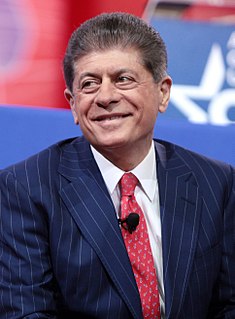A Quote by Thomas Jefferson
To compel a man to furnish contributions of money for the propagation of opinions which he disbelieves and abhors is sinful and tyrannical...A wise and frugal government...shall not take from the mouth of labor the bread it has earned...Congress has not unlimited powers to provide for the general welfare but only those specifically enumerated...Would it not be better to simplify the system of taxation rather than to spread it over such a variety of subjects and pass through so many new hands?
Quote Topics
Better
Bread
Compel
Congress
Contributions
Earned
Frugal
Furnish
General
General Welfare
Government
Hands
Labor
Man
Many
Money
Mouth
New
Only
Opinions
Over
Pass
Powers
Propagation
Provide
Rather
Shall
Simplify
Sinful
Specifically
Spread
Subjects
System
Take
Taxation
Than
Those
Through
Tyrannical
Unlimited
Unlimited Power
Variety
Welfare
Which
Wise
Would
Related Quotes
To compel a man to furnish contributions of money for the propagation of opinions which he disbelieves and abhors, is sinful and tyrannical; . . . even the forcing him to support this or that teacher of his own religious persuasion, is depriving him of the comfortable liberty of giving his contributions to the particular pastor whose morals he would make his pattern. . . .
Thomas Jefferson explained, Congress has not unlimited powers to provide for the general welfare, but only those specifically enumerated. .. If Congress can determine what constitutes the general welfare and can appropriate money for its advancement, where is the limitation to carrying into execution whatever can be effected by money?.
Our tenet ever was . . . that Congress had not unlimited powers to provide for the general welfare, but were restrained to those specifically enumerated; and that, as it was never meant that they should provide for that welfare but by the exercise of the enumerated powers, so it could not have been meant they should raise money for purposes which the enumeration did not place under their action.
A wise and frugal Government, which shall restrain men from injuring one another, which shall leave them otherwise free to regulate their own pursuits of industry and improvement, and shall not take from the mouth of labor the bread it has earned. This is the sum of good government, and this is necessary to close the circle of our felicities.
Article I, Section 8, of the Constitution, of course, lays out the delegated, enumerated, and therefore limited powers of Congress. Only through a deliberate misreading of the general welfare and commerce clauses of the Constitution has the federal government been allowed to overreach its authority and extend its tendrils into every corner of civil society.
The other General Welfare Clause is in the first of the authorities given to the Congress and it's not a grant, it's a restriction. By which I mean it doesn't say Congress can legislate for the general welfare, it means that everything Congress must do has to enhance the general welfare of the United States of America. It can't grant things to individuals, it can only legislate for the government.
Money cannot be applied to the *general welfare*, otherwise than by an application of it to some *particular* measure conducive to the general welfare. Whenever, therefore, money has been raised by the general authority, and is to be applied to a particular measure, a question arises whether the particular measure be within the enumerated authorities vested in Congress. If it be, the money requisite for it may be applied to it; if it be not, no such application can be made.
To refer the power in question to the clause "to provide for the common defense and general welfare" would be contrary to the established and consistent rules of interpretation, as rendering the special and careful enumeration of powers which follow the clause nugatory and improper. Such a view of the Constitution would have the effect of giving to Congress a general power of legislation instead of the defined and limited one hitherto understood to belong to them, the terms "common defense and general welfare" embracing every object and act within the purview of a legislative trust.
With respect to the words "general welfare," I have always regarded them as qualified by the detail of powers connected with them. To take them in a literal and unlimited sense would be a metamorphosis of the Constitution into a character which there is a host of proofs was not contemplated by its creators.





















